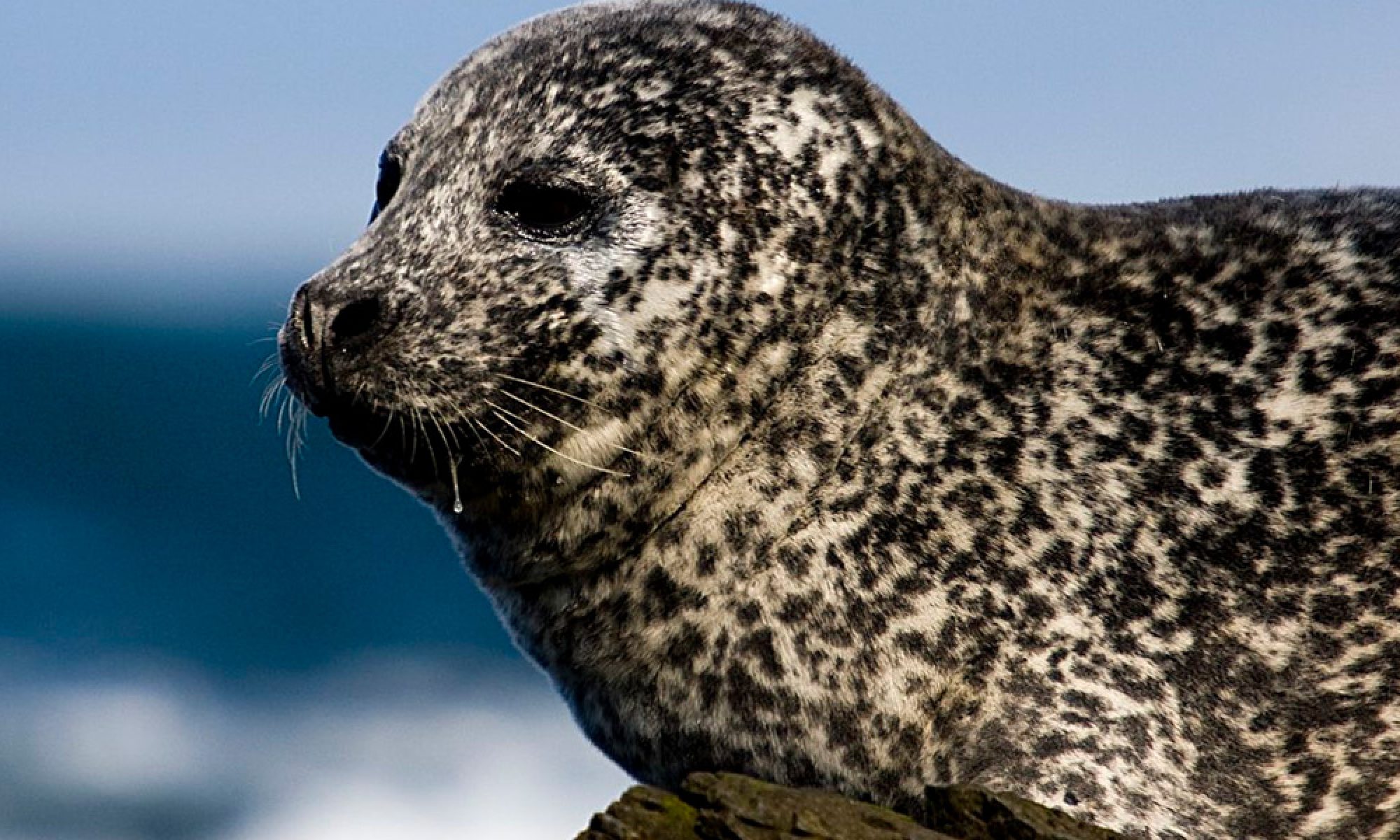The Icelandic Seal Center‘s operation is multi-faceted:
- Research on seals in Icelandic waters as well as behaviour of tourists and their effects on nature and the environment
- Administration of the Seal Museum
- Operation of information center for residents and tourists about Húnaþing vestra
- Operation of the Seal Travel travel agency for fundraising for Icelandic Seal Center
In these operations, the staff of the Icelandic Seal Center work to honour the following environmental policy.
Main components of the environmental policy of the Icelandic Seal Center:
- Emphasis is placed on responsible research and dissemination of information about Icelandic coastal seals as well as proper care of cultural relics and the historical record of local seal hunting.
- Research will focus on the effects of tourists on natural habitat and animal life to promote the development of sustainable environmentally sound tourism,
- Environmentally sound business practices will be pervasive in our operation, for example minimization of energy usage and trash creation.
- All laws and regulations regarding environmental protection will be followed and effort will be made to do more than the bare minimum required in this regard.
Goals and means
The goals and means of the Seal Center’s environmental policy are clear, open and to the benefit of the environment. Our goals and success in meeting them will be reviewed every year.
Research and dissemination of information
- Research results will be presented in exhibitions and information will be posted to the Seal Center website.
- Artefacts owned by the Seal Center will be recorded in a museum registry that is accessible to guests and contains appropriate information.
- All information on exhibit in the Seal Museum shall be available in Icelandic and at least one other language.
- Loaned artefacts from other museums/institutions shall be registered.
- Research on seals and on the environmental effects of tourism shall not damage the environment by its intensity or disturbance. All trash generated by research and presence of staff will be removed in an appropriate manner.
Appearance and reception
- Icelandic Seal Center facilities will be clean and tidy. The property will be regularly cleared of trash both inside and out, as will the beach to the east of the museum.
- Signage on artefacts and property will be succinct and informative in Icelandic and at least one other language.
- The premises will be maintained in good order inside and out.
Pollution and energy usage
- Emphasis will be placed on using environmentally sound products in Seal Center operations when possible; that is, products made from recycled materials and from certified green manufacturers.
- Waste of supplies and inventory will be kept to a minimum through efficient use.
- Printed information brochures will be ordered only as stock is used to reduce the need to discard large amounts of paper at the end of the season.
- Local products and services will be purchased when available.
- All trash will be sorted according to the standards set by Hirða; in addition, recyclable cans and bottles will be brought to the recycling station.
- Chemicals used in the research laboratory will be handled responsibly and disposed of according to applicable laws and regulations.
- Hazardous materials shall be properly disposed of after use.
- Cleaning substances shall be used sparingly, and all effort shall be made to use green cleaning materials.
- Lights and other electronic equipment shall be turned off when not in use and efficient lightbulbs shall be used.
- Printers shall print on both sides of the paper to reduce waste.
- Staff shall be encouraged to print only when necessary.
- Spent ink cartridges shall be recycled appropriately.
- Staff shall be encouraged to choose online meetings when possible to reduce travel. If travel is necessary, carpooling and public transport shall be encouraged.
Tourists
- The intention is to inform tourists of proper conduct in the area and the likely effects of travellers on the natural world.
- Tourists are informed about behaviour around wild animals and on the Seal Center website, that information is structured into a Code of Conduct.
- Visitors are directed toward those areas where the negative effects of tourism have been minimized and landowners allow people passage. Visitors are provided with helpful information about local nature, the animals that inhabit it and recreational possibilities.
About laws, development of the environmental policy and its dissemination
- Laws and regulations regarding environmental matters shall always be followed and rather steps will be taken to do better than just the minimum required.
- The environmental policy will be developed in cooperation with appropriate local individuals and bodies whose assistance and information can help in implementation of the policy, for example: municipal government, and waste management services.
- The environmental policy shall be re-evaluated at the annual Seal Center meeting and the previous year’s successes will be considered.
- The environmental policy will be made available in the museum and on the Seal Center website.
- All staff are taught about the environmental policy when they start and are kept apprised of any changes.
- The managing director bears the responsibility to ensure that the policy is followed in all operations, to review the policy, and to assess its efficacy.
From 2015.

